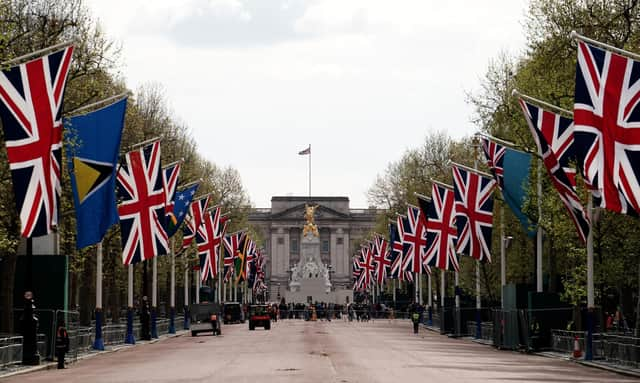Ruth Dudley Edwards: Royal occasions are an excuse to celebrate living in the United Kingdom, one of the most tolerant nations on earth


It was 1953, I was growing up in Dublin and some of my female relatives were complaining bitterly that the IRA were threatening to blow up cinemas that showed the crowning of Elizabeth II. Fanatics like republican granny upstairs agreed that no images of a foreign queen should sully our eyes and men tended to dismiss the event as female frippery, but my Cork aunt was part of a ring of enthusiastic royalists who swapped dozens of English newspapers and magazines showing dizzying images of elaborate pageantry, fairytale gowns, handsome men and beautiful women who I realised later had benefitted genetically from their mixed continental heritage.
She probably bears some of the responsibility of making me a royalist. When I moved to England in 1965 there was a gender divide as strong as that in Ireland and sneering at royals was the default position. I was working in the headquarters of the British Post Office where the male management had little sympathy for those who in 1973 wanted time off to watch Princess Anne marrying Mark Phillips.
Advertisement
Hide AdAdvertisement
Hide AdThey had missed the wise advice of the great Victorian constitutional theorist Walter Bagehot when he was writing in 1863 about the marriage of the future King Edward VII to Princess Alexandra of Denmark. At least half the human race he pointed out, “care fifty times more for a marriage than a ministry”, which thus have a benign effect on politics and society: “A princely marriage is the brilliant edition of a universal fact, and, as such, it rivets mankind.”
As has been true for 1,000 years of British history, “a royal family sweetens politics by the seasonable addition of nice and pretty events. It introduces irrelevant facts into the business of government, but they are facts which speak to men’s bosoms and employ their thoughts”.
When the Queen’s Silver Jubilee came along in 1977, I was a civil servant in the mainly male Department of Industry but I was at a sufficiently senior level to decree that since my main office had a wonderful view of the Thames down which the queen’s pageant would be sailing on a weekday evening, we would have a party. I recruited all the fun-lovers, we sang and we danced and we toasted the queen exuberantly. I've danced in the streets to celebrate the marriage of Charles and Diana and I’ve held a party for William and Catherine where we wore royal fascinators made for us by an American friend.
Temperamentally, I'm in favour of celebrating good things and since I think I'm astonishingly lucky to live in the United Kingdom, I find royal occasions provide excellent excuses. I've been writing a book about royal consorts and I'm entranced by the way in which the monarchy changes in order to survive. It's been fascinating learning what makes for successful and disastrous consorts. I have developed the greatest respect for many of the serried ranks of women who arrived at a strange country with a language they often couldn't speak and little useful experience other that an upbringing that taught them to grit their teeth and get on with it. What matters is that they do their duty and recognise wherever they've come from that their job is to help steady the ship of state and put loyalty to their spouse and the family into which they’ve married before themselves, as Albert and Philip did for Victoria and Elizabeth and Camilla are already doing for Charles.
Advertisement
Hide AdAdvertisement
Hide AdAs Prince Charles said in a documentary on Sunday night, the monarchy is about continuity. We are a country made up of increasingly vast numbers of immigrants and one of the most important things we can give them is, as Charles is doing with his coronation, to make them welcome and part of this ancient, but still strong, fabric. It just one of the glories of the United Kingdom that — as recent polls have shown — it is one of the most tolerant nations on earth.
Much of that is owed to Queen Elizabeth II and her lifetime of devotion to the Commonwealth. Her son will not let down that legacy. Let’s drink to that.